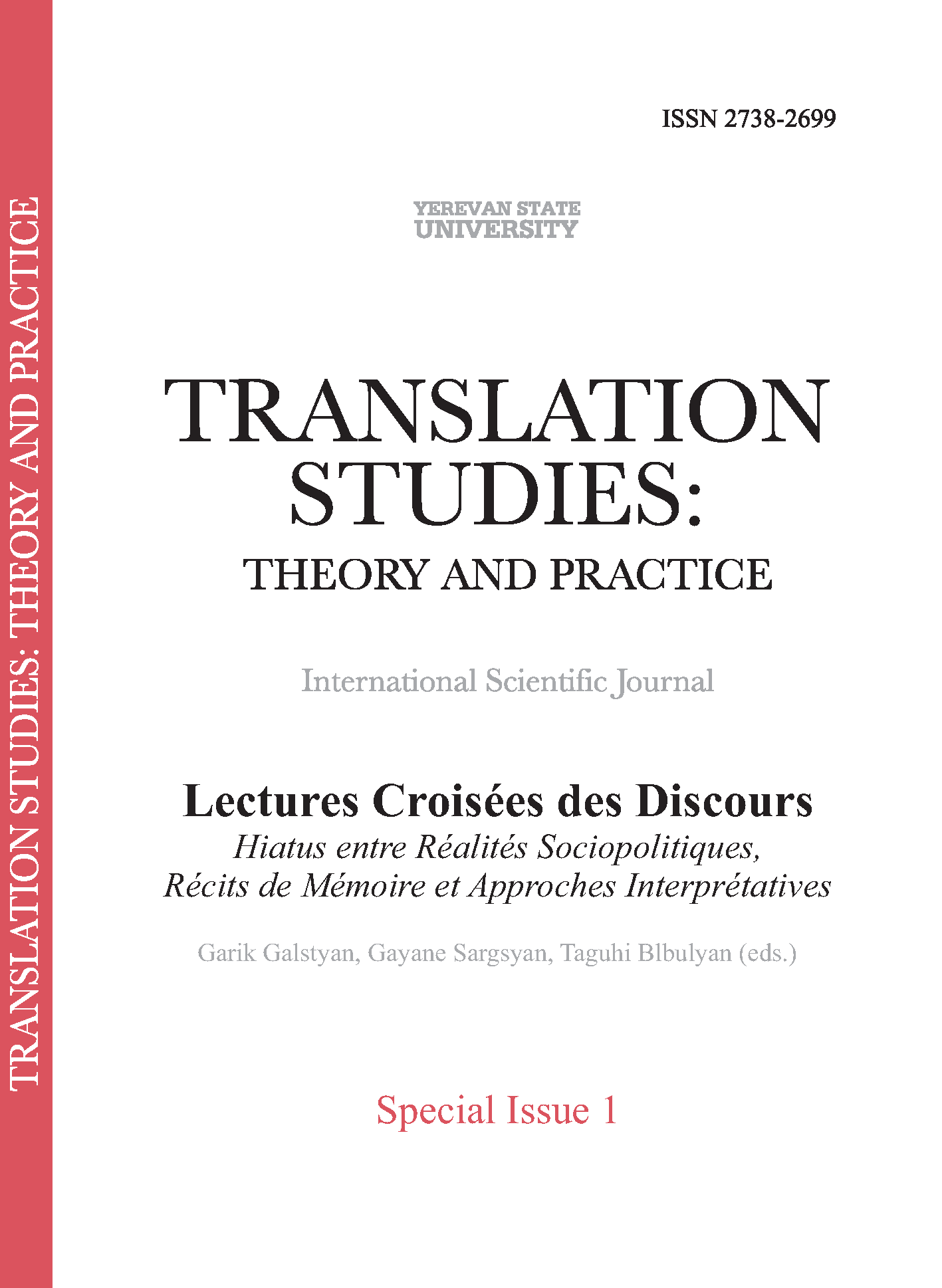Vittoria Aganoor, the Dreamed and Unknown Armenia
DOI:
https://doi.org/10.46991/TSTP/2023.SI.1.183Keywords:
Vittoria Aganoor, Italian poetry, Melkites, Armenia, San Lazzaro degli Armeni, OrientalismAbstract
This work concerns the Italian poet Vittoria Aganoor (1855-1910), daughter of Edoardo Aganoor, an aristocrat of Armenian origin. His tutor, Father Zanella, a great poet and pedagogue, detected his poetic talent in his youth. Since the 1870s, she published poems in literary journals. Her first book was released in 1900 and was a great success, but she was already praised by the critics and well-known by the public. Her father refused teaching her Armenian. The frustration linked to this “denied language” will accompany him throughout his life. She will not be able to learn Armenian in her youth because of the inexplicable refusal of her father, and when she was finally free to do so, she was too old. Armenian will forever remain a foreign idiom that does not belong to her: a part of herself has thus been taken away from her and will no longer find her words. Incommunicability and denied language are an integral part of his poetics, and appear in other writings, notably his letters.
References
Aganoor, Vittoria, Leggenda eterna. Intermezzo - Risveglio, Treves, Milano, 1900.
Aganoor, Vittoria, Nuove liriche, Nuova Antologia, Roma, 1908.
Aganoor, Vittoria, Poesie complete di Vittoria Aganoor, avec notes et introduction de Luigi Grilli, Le Monnier, Firenze, 1912.
Aganoor, Vittoria, Lettere a Domenico Gnoli (1898-1901), Salvatore Sciascia, Caltanissetta, 1967.
Butcher, John, Una leggenda eterna. Vita e poesia di Vittoria Aganoor Pompilj, Casa Editrice Nuova S1, Bologna, 2007.
Ciani, Lucia, La brezza e il vento. Corrispondenza di Vittoria Aganoor e Guido Pompilj, Casa Editrice Nuova S1, Bologna, 2004.
Croce, Benedetto, « Note sulla letteratura italiana nella seconda metà del secolo XI. XXXIII. Alinda Bonacci, Vittoria Aganoor, Enrichetta Capecelatro », La Critica, 1911, volume IX.
Dossi, Carlo, Note azzurre, Adelphi, Milano, 1964.
Zanella, Giacomo, Profili, Stabilimento Prosperini, Padova, 1872.
Downloads
Published
Issue
Section
License
Copyright (c) 2023 Antonella Mauri

This work is licensed under a Creative Commons Attribution-NonCommercial 4.0 International License.





